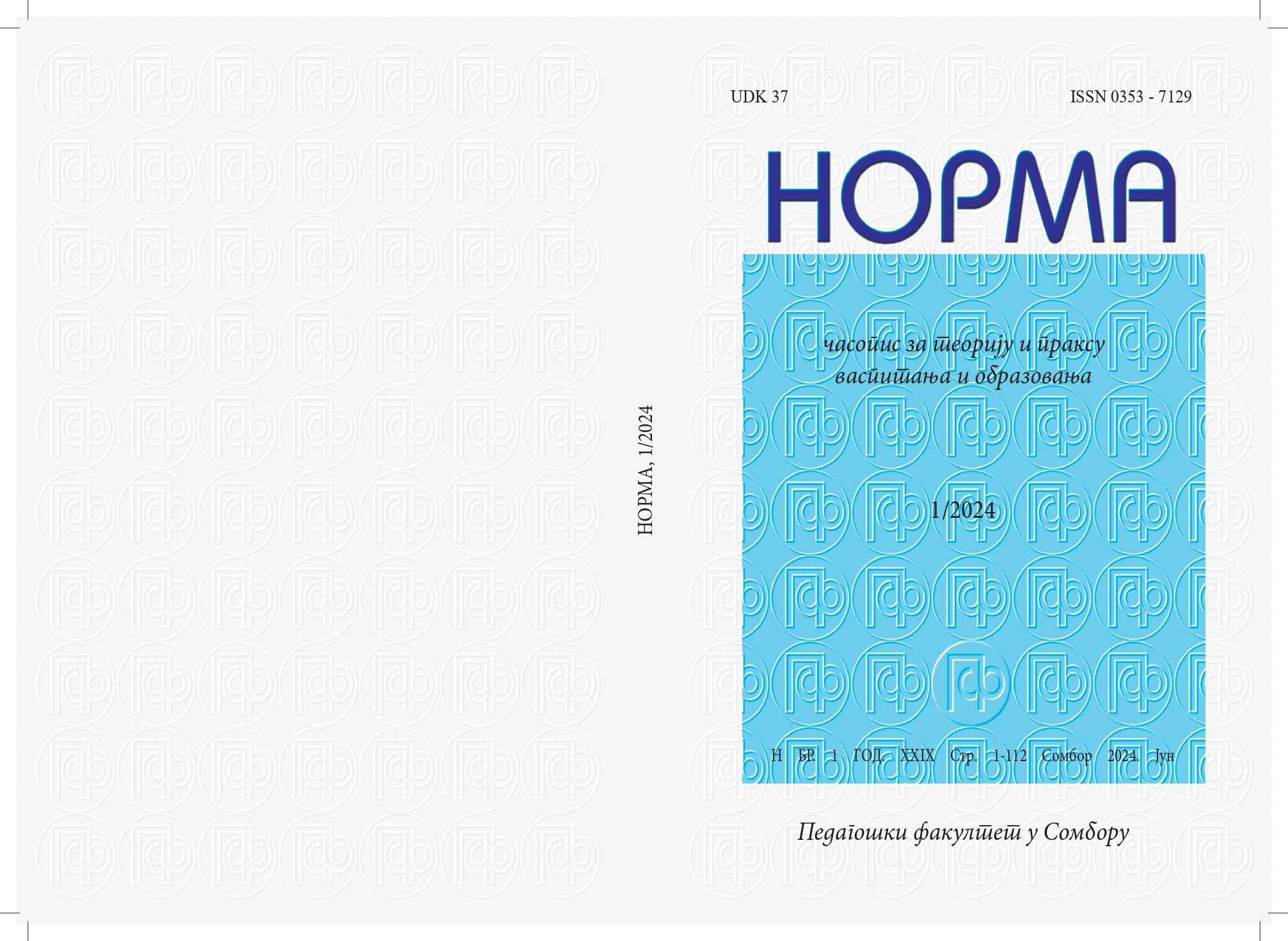Factors that influence educators attitudes towards the use of assistive technology in working with students with mild intellectual disabilities
Abstract
The use of assistive technology (АТ) in teaching can have a positive effect on learning abilities, development of academic potential, and communication with other peers in students with mild intellectual disabilities (MID). The attitudes of educators represent a very important factor in the application of AT in working with students with MID. The objective of this work was to review research conducted to examine the attitudes of educators toward the use of AT in working with students with MID. The available literature was collected by searching the scientific databases of Google Scholar, Scopus, and SCIndeks. The overview part of the work included reviews and research papers that focus on the examination of teachers' attitudes towards the application of AT in working with students with MID. Positive attitudes of teachers towards the use of AT in working with students with MID and the application of methods and means of AT affect the improvement of the specific intellectual skills of these students. Numerous obstacles to the application of AT can influence the development of negative attitudes of educators. Adequate forms of education, educational interventions, and technical and resource support can significantly improve educators' attitudes toward using AT in working with students with MID. We look at the unfavorable climate when it comes to the use of AT and the basic principles that should be followed in this process. Based on the literature review, in the concluding part of the paper we also gave recommendations for future research.
Copyright (c) 2024 Norma

This work is licensed under a Creative Commons Attribution 4.0 International License.

